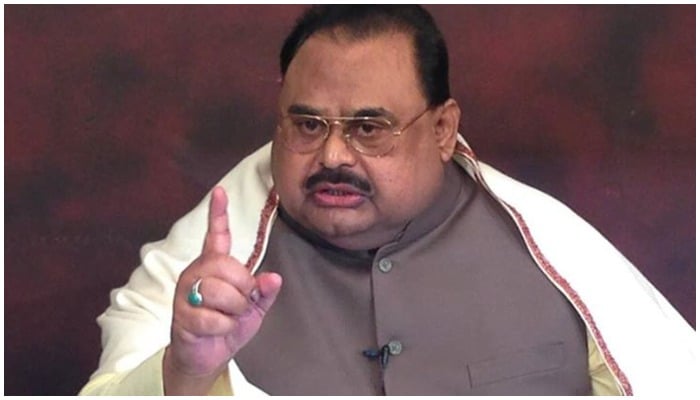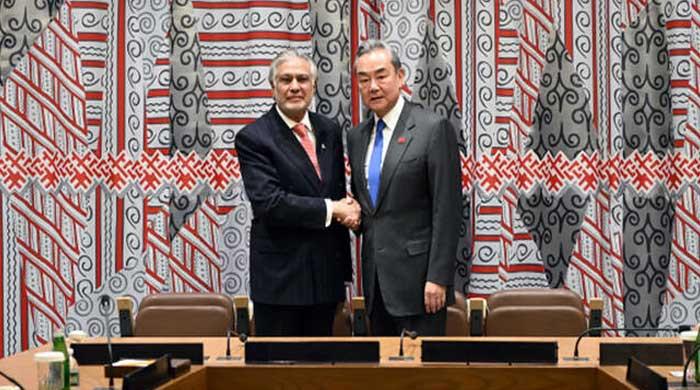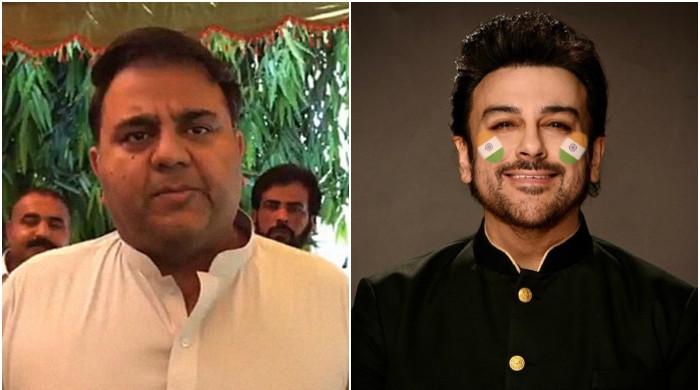Jury takes oath in Altaf Hussain’s terror incitement trial
Altaf Hussain was also in court when the prosecution’s case was read out to the jury
February 03, 2022

- Jury took oath of their obligations in the case before Justice May.
- Altaf Hussain was also in court when the prosecution’s case was read out to the jury.
- Jury was retired for the day after taking the oath and hearing about the nature of the charge.
LONDON: A 12-member jury has taken oath ahead of the start of MQM's founder Altaf Hussain’s incitement of terrorism case at the Kingston Crown Court in London.
The jury took the oath of their obligations in the case before Justice May. Hussain was in attendance when the court read out to the jury the prosecution’s case against the MQM founder.
The jury members were told that Hussain, 69, has been charged under the Terrorism Act 2006 on suspicion of intentionally encouraging or assisting offences contrary to Section 44 of the Serious Crime Act 2007. The court told the jury that the defendant denies the charge of inciting a terrorism act.
Read more: Altaf Hussain to stand trial for three weeks in hate speech case
The jury was retired for the day after taking the oath and hearing about the nature of the charge. The judge said that the case is likely to go on till February 25.
Hussain’s legal team has previously said that he was upset at the way three major news channels had censored his speeches and did not provide him coverage before the August 16, 2016, address.
The lawyers have said that the MQM founder had made the speech only for “political purposes” and did not encourage terrorism. They added that their client did not mean to do anything violent, damage properties, intimidate opponents, or any state institution or media houses.
Read more: UK prosecution rejects Altaf Hussain's plea of being unfit to stand terror trial
The UK authorities launched the investigations into the matter after a first information report (FIR) was lodged in Karachi, naming the MQM leader as the "alleged instigator of riots that followed his speech."
Hussain was arrested on June 11, 2019, on suspicion of "intentionally encouraging or assisting offences contrary to Section 44 of the Serious Crime Act 2007." He was released on bail and subsequently charged in October 2019.
To maintain fairness and ensure justice is done, members of the jury take an oath and give undertakings that they will not seek to know anything about the defendant through media and will focus on only what’s disclosed inside the courtroom by the prosecution and the defendant.
According to the rules, it is an offence for a member of the jury to research the case he or she is trying during the trial period; intentionally disclose information to another member of the jury that had been obtained by research; intentionally engage in conduct, during the trial period, from which it may reasonably be concluded that the person intends to try the issue otherwise than based on the evidence presented in the proceedings in the court; intentionally disclose information about statements made, opinions expressed, arguments advanced, or votes cast by members of a jury in the course of their deliberations in proceedings before a court, or to solicit or obtain such information.
Throughout the proceedings, the court reminds the jury of their obligations and the terms of the oath.











